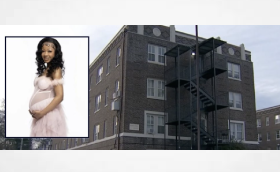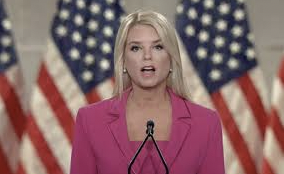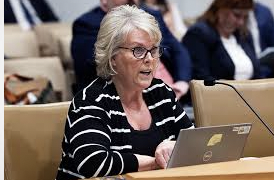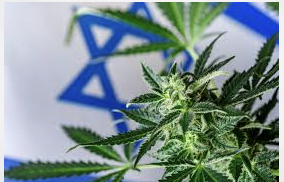Overview
Defendant was charged with Illegal Possession of a Controlled Substance in violation of 6 CMC § 2142(a)-(b).[1]
Defendant entered plea negotiations which resulted in a sentence requiring 15 months’ imprisonment, a $2,000 fine, and 30 months of drug rehabilitation services after release. Pursuant to the terms in the plea agreement, the court mandated Hocog to receive 30 months of rehabilitation treatment from the Hawaii Habilitat Treatment facility or a similar facility.
The Court found that Defendant’s sentence with respect to the rehabilitation provision was unreasonable. The court vacated and remanded the decision to the lower court.
Background
The Commonwealth of the Northern Mariana Islands (“Commonwealth”) charged Hocog with Illegal Possession of a Controlled Substance in violation of 6 CMC § 2142(b). The parties negotiated and entered into a plea agreement, in which Hocog agreed to plead guilty to the charge, be sentenced to fifteen months imprisonment, pay a $2,000 fine, and receive thirty months of drug rehabilitation services after his release from imprisonment. Hocog agreed to rehabilitation conditioned upon the Commonwealth withdrawing a motion to forfeit Hocog’s $10,000 bond.
The parties presented the plea agreement at a change of plea hearing. At the hearing, defense counsel objected to a clause in the plea agreement proposing the Office of Adult Probation (“OAP”) monitor Hocog’s compliance with the rehabilitation provision.
After negotiations, the monitoring party was changed to the CNMI Office of the Attorney General.
Eight months later, Defendant filed a motion to correct illegal sentence pursuant to NMI Rule of Criminal Procedure 35(a), arguing the court did not have authority to enforce the rehabilitation provision and the provision was thus illegal.
Issue
The question revolved on whether a rehabilitation clause in a marijuana related plea agreement creates an illegal sentence?
Ruling
The rehabilitation clause was not an illegal sentence; however, the plea agreement was dismissed on other grounds.
Analysis
The court held “the court may suspend or modify all or part of a sentence and order probation or other sentencing where that action is deemed to be in the best interests of justice.” This gives sentencing courts broad latitude in fashioning a sentence.
The Court was careful to note that that courts cannot render a sentence that conflicts with other sentencing statutes. Here, the court sentenced Hocog to 15 months’ imprisonment, a $2,000 fine, and 30 months of drug rehabilitation services after release. The only limitation is found in Section 2142, which limits the maximum term of imprisonment to five years and the maximum fine to $2,000. Thus, the court did not exceed its mandate to fashion a sentence “in the best interests of justice” and did not conflict with other sentencing statutes.
Therefore, the plea was not an illegal sentence.
However, the plea was overturned on its unreasonableness.
The court explicitly, “mandated that Hocog receive 30 months of rehabilitation treatment from the Hawaii Habilitat Treatment facility or a similar facility. To fund this, the court ordered that the $10,000 which Hocog’s mother posted as bail “be used for treatment at Habilitat or a substantially similar rehabilitation program.” It did not make any findings concerning Hocog’s eligibility for admission to a long-term addiction treatment center, the costs and duration of the long-term treatment program, or his ability to pay for the rehabilitation program. It simply ordered that Hocog receive 30 months of rehabilitation treatment. There is also no discussion of responsibility for payment of any costs in excess of $10,000 and it is unrealistic to expect that $10,000 would enough to pay for Hocog to live in Hawaii and attend a residential treatment program for thirty months when the cost of living in Hawaii is one of the most expensive in the United States.”
The CNMI Supreme Court writes, “It behooves the court to evaluate and render a sentence which a defendant can carry out… in the interests of justice, we find that Hocog’s sentence with respect to the rehabilitation provision was unreasonably rendered.”
Conclusion
The CNMI Supreme Court was clear in their analysis that a court can and should allow plea agreements for marijuana related offenses, so long as those agreements are not unreasonable. When analyzing whether a plea is reasonable, the standard is, “if no reasonable person would have imposed the same sentence.”
Takeaways
1) The Commonwealth Code of the Northern Mariana Islands creates a specific caveat for marijuana related offenses and pleas. Specifically, 6 N. Mar. I. Code § 2142(b) states that any person who violates subsection (a) of this section with respect to any controlled substance except marijuana shall be sentenced to a term of imprisonment of not more than five years not subject to suspension, parole or probation, and a fine of $2,000.
2) Although the recreational and medicinal use of cannabis in the Northern Mariana Islands has been legal since September 2018, marijuana related cases are still making their way through the CNMI courts.
3) Plea agreements must be reasonable. When looking at reasonableness, courts will look holistically at the crime, the defendant, and the instance.
[1] (“Section 2142”) states:
(a) It is unlawful for any person knowingly or intentionally to possess a controlled substance…
(b) Any person who violates subdivision (a) with respect to any controlled substance except marijuana shall be sentenced to a term of imprisonment for not more than five years not subject to suspension, parole or probation, and a fine of $2,000.

Alexander Hymowitz
Alexander is a third-year law student at New York Law School. Alex is interested in the legacy market, social-equity and regulatory scheme differences between states.



















